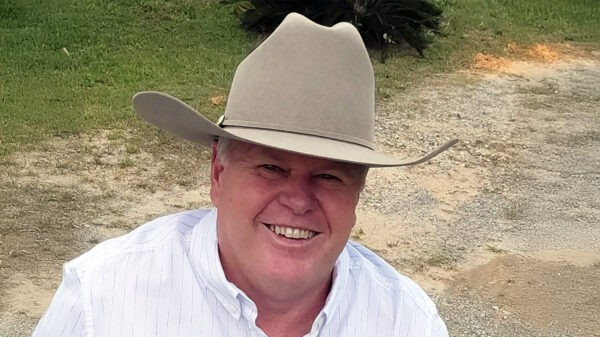The INVEST in America Act passed in the House of Representatives last week. Congresswoman Terri Sewell, D-Alabama, announced that her bill — HR3745, the Decentralized Wastewater Grant Act — was included in the House Democrats’ INVEST in America Act.
The bill would establish a grant program under the Clean Water Act, administered by the Environmental Protection Agency, to help low and moderate-income households connect their homes to existing wastewater infrastructure or install or upgrade individually-owned decentralized wastewater systems.
“Access to clean water and adequate wastewater infrastructure are basic human rights,” Sewell said. “For too many rural communities in my district and across the country, failing wastewater infrastructure has created serious health, economic, and environmental hazards.”
“The Decentralized Wastewater Grant Act will make it more affordable for families to connect their homes to existing wastewater systems or install quality septic systems of their own,” Sewell said. “I was proud to introduce this legislation and thrilled to see it pass out of the House. This is one more step toward finally ending our country’s wastewater crisis.”
Sewell and Brian Babin, R-Texas, introduced the bipartisan Decentralized Wastewater Grant Act on June 8, 2021. The bill originally provided $50 million for each fiscal year 2022 through 2026, totaling $250 million. However, thanks to an amendment offered by Sewell, which passed the House on Wednesday, authorized funding for the program was doubled in the House bill. The bill would now provide $100 million for each fiscal year 2022 through 2026, totaling $500 million.
Many communities, particularly in Alabama’s Black Belt, due largely to the distinctive soils the region is named for, have severe wastewater issues. The area’s gumbo-like soil generally does not perc. A normal septic tank system will not function properly there, meaning that a home sewer system there is much more expensive than the systems for soils that do pass a perc test.
“The Decentralized Wastewater Grant Act will make it more affordable for families to connect their homes to existing wastewater systems or install quality septic systems of their own,” Sewell said. “I was proud to introduce this legislation and thrilled to see it pass this critical committee vote. This is one more step toward finally ending our country’s wastewater crisis.”
“While many Americans have access to municipal wastewater infrastructure, there are still millions of people across the nation who are responsible for their own sewage systems, which comes with a large price tag,” Babin, the lead Republican co-sponsor, said. “I am pleased to support the Decentralized Wastewater Grant Act of 2021, which is a bipartisan bill that will provide much needed assistance to communities around the country to install wastewater systems or connect to public wastewater treatment systems.”
The grant program established by the Decentralized Wastewater Grant Act of 2021 would provide grants to qualified nonprofit organizations, which would then provide sub-grants to eligible individuals lacking adequate wastewater infrastructure. Directing funds to organizations with expertise in this issue will help ensure that grants reach those individuals who are most in need.
The INVEST in America Act would make significant investments in drinking water and wastewater infrastructure.
These include drinking water infrastructure and assistance programs including:
- $53 billion: Drinking Water State Revolving Fund
- $45 billion: Fully replace lead service lines nationwide
- $5 billion: Assistance for local water systems to clean up PFAS contamination
- $4 billion: Reduce and eliminate water utility debts incurred since March 2020
- $8 billion: Federal low-income water assistance programs
Wastewater Infrastructure including:
- $40 billion: Clean Water State Revolving Fund
- $2 billion: Grants to municipalities to capture, treat, or reuse sewer overflows or storm water
- $2.5 billion: Grants for state water pollution control programs
- $1 billion: Clean water pilot programs and projects for climate resiliency
- $1 billion: Alternative water source projects, such as wastewater or storm water reuse, to augment the existing water supplies
- $1 billion: Clean Water Act grants to municipalities to implement treatment standards for PFAS and other emerging contaminants
- $2.5 billion: Wastewater infrastructure assistance to address backlog of needs for Indian Tribes
The Senate is now considering its own infrastructure bill.
Sewell is now in her sixth term representing Alabama’s 7th Congressional District.

















































